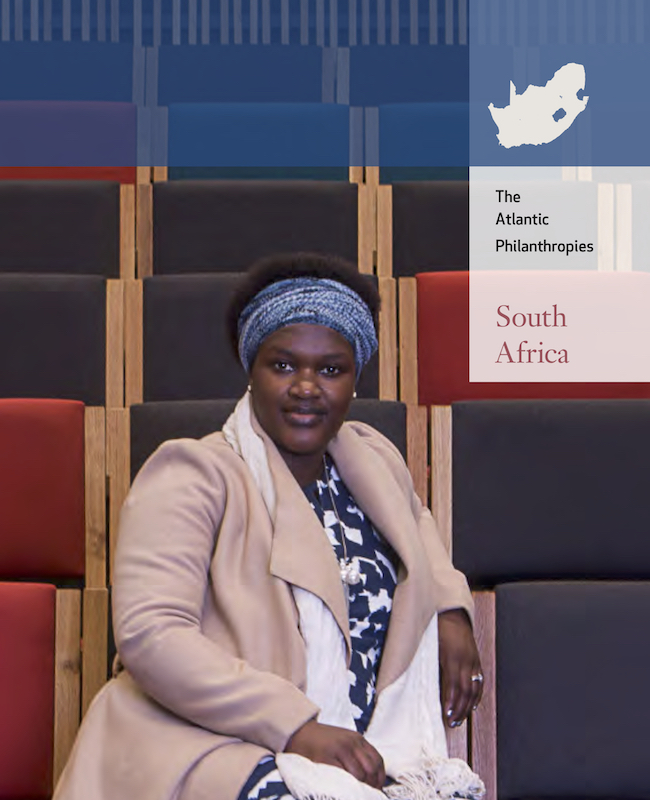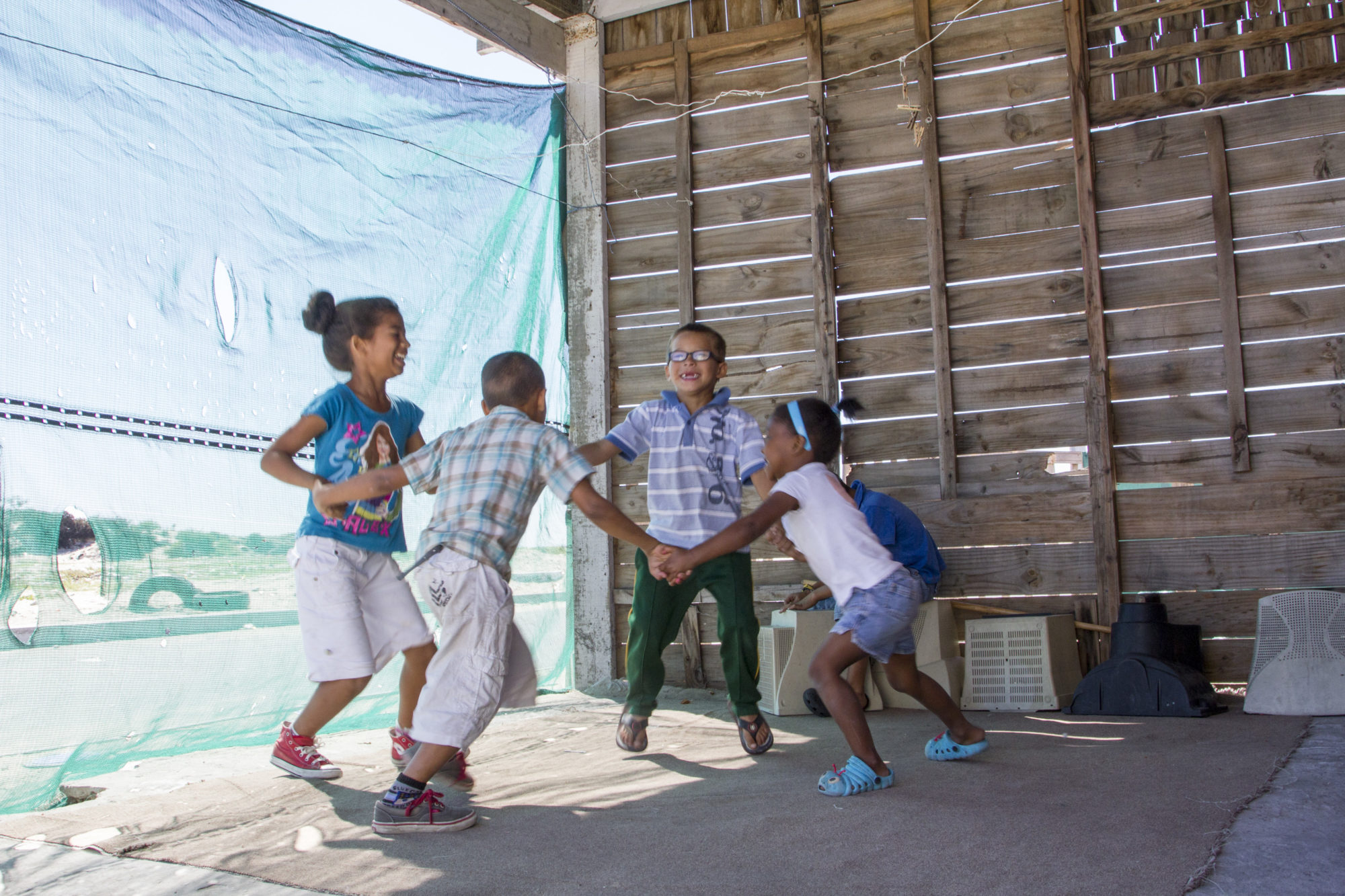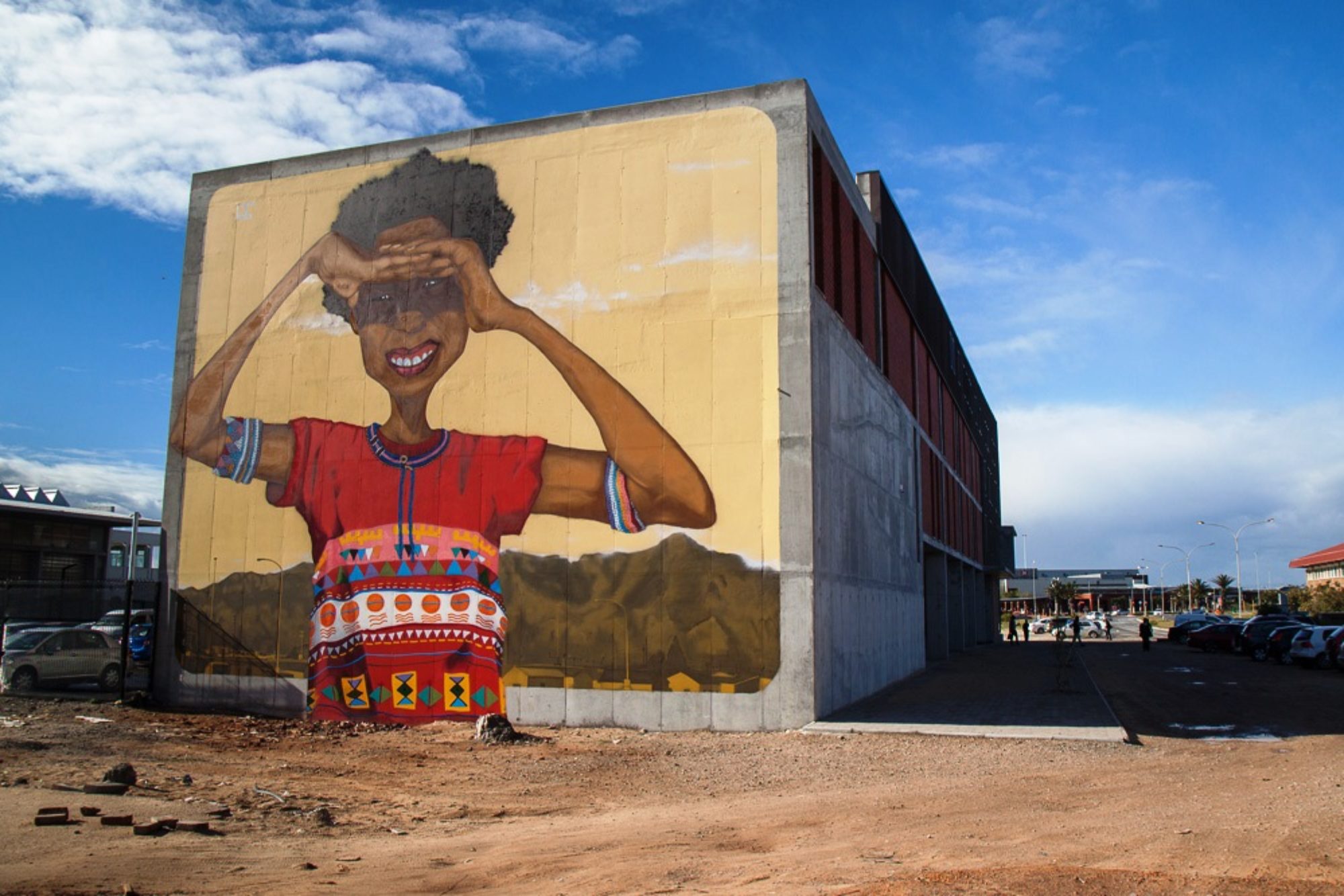Country Books South Africa
About the Book
The Story.
The Impact.
The Lessons.
This book describes how Atlantic invested $422 million to help advance democracy in South Africa, reduce inequality and improve people’s well-being.
What the book covers:
- Overview of Atlantic’s work in South Africa.
- People and groups the foundation supported.
- What Atlantic’s grantees accomplished.
- Lessons from the work.

Summary
The “prospect of a new era” drew Atlantic to South Africa. Harvey Dale, Atlantic’s founding president, who initiated the foundation’s work in the country in 1991, saw the opportunity to be “engaged in a potentially game-changing period in a society emerging from apartheid repression.”
In its first decade, Atlantic invested widely in six fields, of which three claimed the great majority of its grants: (a) justice, equality and human rights, (b) higher education and (c) the strengthening of South African philanthropy and civil society. The median total outlay in this early period was around ZAR8.8 million ($1.6 million) a year, much of which flowed to organizations seeking to deliver and defend the rights defined in South Africa’s new Constitution, and to colleges and universities, particularly those offering education, professional training and research opportunities to South Africans who had been denied these opportunities under apartheid.
Beginning in 2004, Atlantic substantially increased the amount of its commitments to ZAR256 million ($27.7 million) a year, on average, while narrowing its strategic focus to two broad program areas where it thought it could have the biggest impact as a limited life foundation: reconciliation and human rights, and population health.
In the area of reconciliation and human rights, the foundation expanded its support for organizations dedicated to public-interest law, defense of constitutional democracy, reconciliation of former enemies and combatants, and greater access to education, health and the fundamentals of a decent life. To learn from and reconcile South Africa’s past, Atlantic also helped establish museums and archives to share the story of colonialism and apartheid, and the struggle against it.
“Our aim in South Africa was always to promote human rights and to work with a small number of organizations that were best placed to do this.”
– Harvey Dale, founding president, The Atlantic Philanthropies
A series of Atlantic’s grants sat at the intersection of its human rights and population health programs, supporting advocacy efforts to improve access to quality health care for all South Africans. For example, one of the foundation’s human rights grantees, Treatment Action Campaign (TAC), ignited a movement to counteract a misguided government policy of denial about HIV/AIDS. TAC used the courts, peaceful protest and civil disobedience to gain universal access to antiretroviral (ARV) treatment, thereby saving thousands of people’s lives. South Africa went from having zero people in the public health sector receiving ARVs in 2004 to more than 2 million receiving them in 2013.
In the area of population health, the foundation likewise continued, after 2004, to support many of the lines of work that it had begun in the previous decade. However, the focus shifted to three primary areas: developing human resources in health, building the primary health care system, and increasing the voice of the disadvantaged population through advocacy. The work included support for research and education in public health and biomedical sciences, and programs to improve the government’s ability to analyze, manage, implement and coordinate health policy from the national to the local level.
But in the later period, Atlantic also embarked on an ambitious program to upgrade the education, working conditions and retention of nurses, who are the main providers of primary care for the overwhelming majority of South Africans. The core of this new program was to strengthen the profession to deliver quality primary health care through a series of grants to nursing colleges and university nursing departments, as well as major support for organizations that promote better nursing policy and education.
Other lines of grantmaking sought to develop human capital in the health sector more broadly—for example, Atlantic supported key institutions to increase numbers, upgrade skills and improve retention of human resources in primary health care. There was also additional training in management and leadership for district health officials, while other support helped low-income and rural South Africans pursue careers in the health professions.
Many of the organizations Atlantic supported in South Africa express particular appreciation for the foundation’s lack of interference in their work. As one grantee put it, “You could rely on Atlantic not to dictate what their money should be spent on.” Grants were typically based on a carefully formulated plan of action, after which the foundation stepped aside, allowed grantees to pursue the agreed-upon goals and provided help with day-to-day activities only when asked.
Timeline
Atlantic in South Africa, 1991 to 2016
-
1991
First grant in South Africa ($100,000 to the Institute of International Education)
-
1991
Grantmaking focuses on reconciliation and higher education
-
2000
Office opens in Johannesburg
-
2002
Grantmaking shifts to population health and human rights
-
2004
Start of investing in human resources in health
-
2005
Chuck Feeney visits South Africa; commits to invest in Life Sciences Building at UWC
-
2007
Investment in nursing begins
-
2013
Closes office in Johannesburg
-
2016
Largest and last grant commitments: Atlantic Fellows for Health Equity in South Africa ($45m) and UCT ($22m)

Top Lessons
Our Top Takeaways
These six takeaways from Atlantic’s experiences in South Africa might be useful for other funders:
- Even very big bets from foreign donors are, at most, a small part of the overall equation of social change in a country as complex as South Africa.
- It is often better to invest in a country’s existing assets than to try to create new ones.
- Maintain a wide network of local contacts and advisors in your fields of interest, and refresh that network continuously.
- Know whether your goal is to produce a set of discrete accomplishments, or to fuel ongoing capacity.
- One way a time-limited donor can support discrete projects is to invest in buildings and equipment for institutions that provide critical social benefits.
- A limited life foundation should start planning its conclusion from the very beginning of its operations.
Grantee Stories
Our grantees have stories to tell.
Here are the grantee stories featured in this book:
- Black Sash and Community Advice Offices
- Legal Resources Centre
- University of the Western Cape
- Lawyers for Human Rights
- Umthombo Youth Development Foundation
- Archives and the Importance of Memory
- Nursing Schools and Programmes
- Health Care Systems
- LGBTI Rights
- Social Justice Coalition
- Equal Education
- Isivivana Centre

Download
Read it now.
Find out how the people and organizations Atlantic supported in South Africa made a meaningful difference in the lives of millions.
Download the full book (PDF) ›
Further Reading
